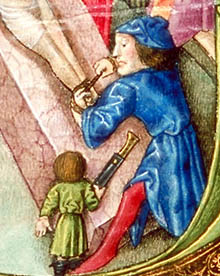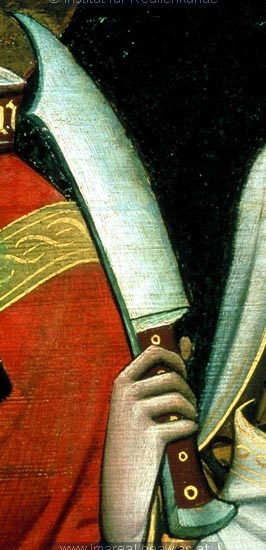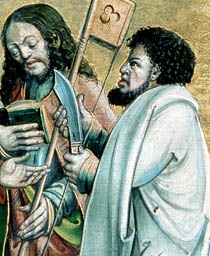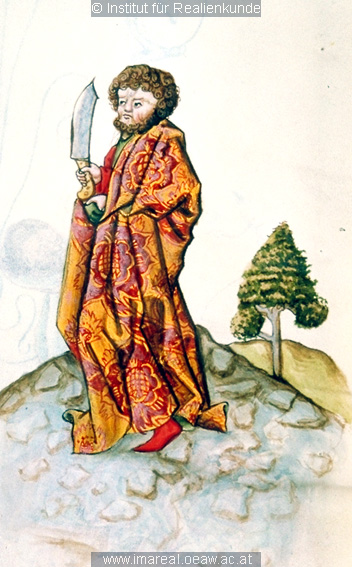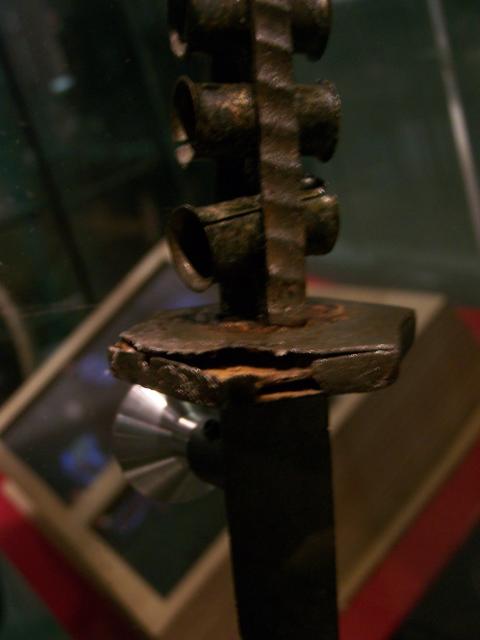I'm going to make one of these (to me) very attractive knives and have a few questions:
I know generally how tubular rivets are made/set, but I have no hands-on experience. For this project, should I drill the main hole, then countersink a slightly larger hole for the peened edges of the tube to rest in? Tool tips?
Steel or brass tubing for the rivets? I assume the brass would be much easier/neater to work with since it's so easily annealed. But is one material more historically appropriate than the other?
If the tubular rivets don't work out for some reason, is it historically appropriate to use solid rivets?
One of the images below offers a clue about the carriage and purpose of such knives. See that little Torturer's Apprentice? He's handing Daddy one of these knives in its sheath with a byknife or pricker. That treatment suggests to me that this is just a general purpose knife--a Bauernwehr or Hauswehr. Is that right? Am I justified, historically, in calling my project a Bauernwehr? Or is this something else--a form of butcher's knife that the medieval Average Joe would immediately recognize as distinct from his everyday knife?
Should the scabbard/sheath be of thick leather or more like a sword scabbard--thin leather over wood core. The aforementioned image of the byknife suggests the latter, doesn't it? Maybe both methods are appropriate.
Most of these knives clearly have bolsters, but in some cases the wood scales just seem to bevel down to the blade. I don't mind making a sandwich-type bolster, but if that isn't an historically accurate method I'd rather stick to the all-wood grip if that would be more accurate.
Any general suggestions?
Thanks!

